Premium Only Content
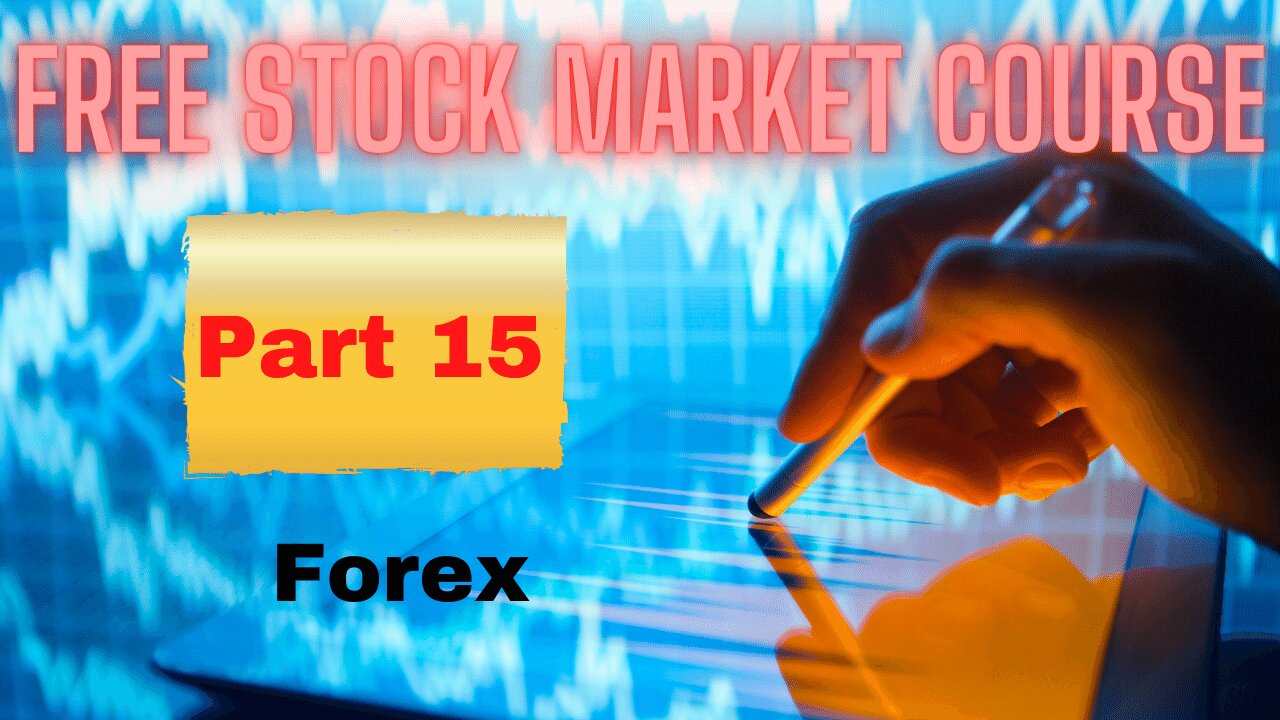
Free Stock Market Course Part 15: Forex
Free File downloads
Course notes, Audio files, Assessments, Transcript files, and Course Outline: https://spxinvestingblog.com/downloads/
My Exclusive Free Workshop: The Four P's of Building a Successful Investing Program → https://spxinvesting.mailchimpsites.com
Blog: https://spxinvestingblog.com
Facebook Group: https://www.facebook.com/groups/433843641082343
Chapters:
00:00 The Forex Market
00:52 History
02:08 The Forex Market
04:27 Currencies
06:50 Names of the Foreign Exchange Market
07:21 Quotes
08:29 Currency Quote Example
10:22 Spreads and Pips
12:01 Foreign Exchange Futures Contracts
14:10 Exchanges
14:33 Liquidity
16:56 Leverage
19:35 Enticements
21:03 Differences Between Forex and Stocks
23:07 Forex Exchanges
24:17 Advantages
29:07 Risks
30:12 Disadvantages
36:30 Conclusion
Module 3 Section 7
Forex
History
August 15, 1971, President Richard Nixon abandoned both the gold standard and the system of fixed exchange rates.
CME traders did not have access to the inter-bank exchange markets in the early 1970s. They could not adjust positions if changes took place in the currency markets.
To help solve this problem, the CME established the IMM and launched trading in seven currency futures on May 16, 1972.
The Forex Market
Where world currencies are traded.
Currencies need to be exchanged, or converted, into other currencies for a variety of reasons including:
Importing and exporting goods to and from countries.
Travel
Multinational company revenues.
Currencies
The foreign exchange market allows traders to take advantage of price movements between currency pairs.
The foreign exchange market is also known as: Forex, FX Market, Currency market.
Quotes
Relation to another currency.
Currency pair:
Base currency = 1
Counter currency
Spreads and PIPs
Bid/Ask Spread:
EUR/USD = 1.2500/03, spread 0.0003 or 3 pips.
Small movements = large profits or losses.
Pip = smallest move
Daily range = 100 to 150 pips
Foreign Exchange Futures Contracts
Forex is different than Futures Contracts
Forex = Spot Market
Currency futures:
Future exchange rate
Futures are regulated, whereas Forex markets are not US regulated.
Quotes against the U.S. dollar.
Contracts represent a certain currency type, specific price, settlement date
Exchanges
Liquidity
Individual Investors can now easily buy and sell currencies using online brokerage accounts.
Forex offers round-the-clock trading 5.5 days per week and has massive liquidity.
The Forex market is the largest and most liquid market in the world.
Supply and Demand
Leverage
Volatility is not very high but leverage means a non-volatile asset can show gains or losses very quickly.
Movement is enticing.
Leverage 250:1 (50:1 is common).
High leverage can be extremely risky
Enticements
Huge market:
Liquidity
Extremely large trades
Volatility:
Entices individual traders
Global structure:
Low margin requirements:
Differences Between Forex and Stocks
Forex very few trading vehicles. Thousands of stocks
Buying and selling simultaneously
Forex Exchanges
No central location
Electronically using computer networks.
Traded worldwide
Advantages
Low Costs
All time frames (minutes to months)
High Liquidity
No central exchange helps avoid any sudden surprises.
No insiders
Deregulation
Shorting is done easily.
Volatility allows for price movements.
28 major currency pairs involving eight major currencies
Low Capital Requirements
Technical Analysis heavily used
Risks
Leverage is a double-edged sword.
Losses can wipe out an account in a matter of minutes.
Reaction to information that is released can lead to sharp moves in the price of the currency pair.
Disadvantages
Lack of Transparency:
Deregulation means a trader may not have any control over how a trade is filled. A trader may not get the best price or may get limited views on trading quotes as provided by the broker. This can be overcome by dealing only with regulated brokers. The market may not be regulated, but US brokers are regulated.
Complex Price Determination Process:
Global politics or economics can be challenging to analyze for reaching reliable conclusions.
Self- Directed Learning:
In the stock market, a trader can seek professional assistance much easier than in the forex market.
Forex traders get little or no assistance. Most traders quit quickly due to losses, limited forex trading knowledge, and training.
High Volatility:
Recourse:
If something goes wrong with the market, stock traders and investors can go to regulators. Forex traders have nowhere to go. For example, if a currency collapses.
Conclusion
Often perceived and promoted as an easy way to make money, forex trading is actually quite difficult. Most beginners are not successful.
Success requires:
Perseverance
Continuous learning
Efficient capital management techniques
The ability to take risks
A robust trading plan
The Internet full of gurus, programs, software, and books promising an easy road to riches by trading the forex market. This is unrealistic.
-
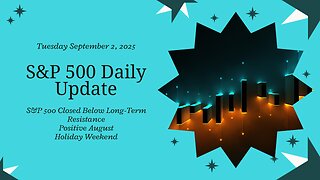 41:37
41:37
The SPX Investing Program
1 day agoS&P 500 Daily Update for Tuesday September 2, 2025
281 -
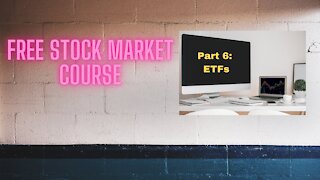 21:15
21:15
The SPX Investing Program
3 years ago $0.01 earnedFree Stock Market Course. Part 6: ETFs
331 -
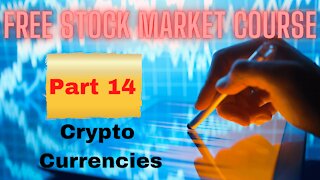 49:22
49:22
The SPX Investing Program
3 years ago $0.02 earnedFree Stock Market Course Part 14: Cryptocurrencies
2223 -
 19:11
19:11
The SPX Investing Program
3 years agoFree Stock Market Course Part 11: Liquidity
190 -
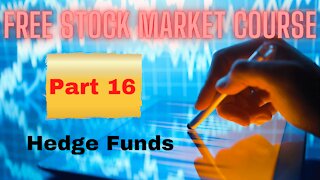 30:11
30:11
The SPX Investing Program
3 years agoFree Stock Market Course Part 16: Hedge Funds
187 -
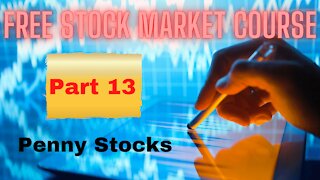 12:55
12:55
The SPX Investing Program
3 years agoFree Stock Market Course Part 13: Penny Stocks
149 -
 16:17
16:17
The SPX Investing Program
3 years agoFree Stock Market Course Part 17: Blue Chip Stocks
426 -
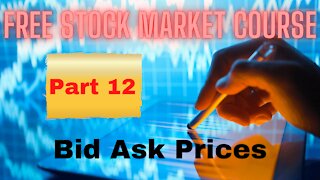 11:09
11:09
The SPX Investing Program
3 years agoFree Stock Market Course Part 12: Bid Ask Prices
137 -
 54:40
54:40
BonginoReport
1 day agoLABOR DAY SPECIAL! The Best of Nightly Scroll - Nightly Scroll w/ Hayley Caronia (Ep.124)
77K10 -
 LIVE
LIVE
Spartan
5 hours agoNew Game+ on E33, then back to Halo Grind
97 watching